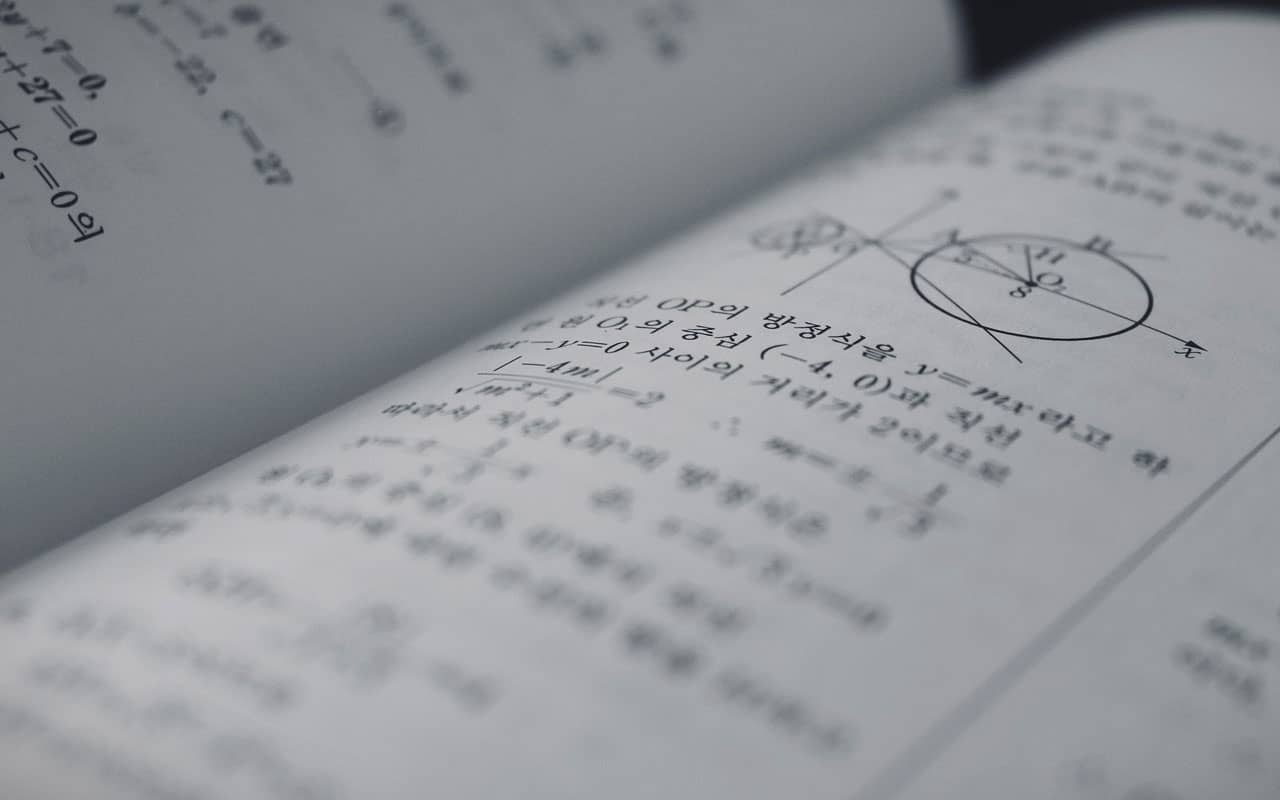 If you’re wondering how to learn mental math as an adult, you might be filled with anxiety.
If you’re wondering how to learn mental math as an adult, you might be filled with anxiety.
You know that solving equations with your mind will increase your cognitive skills.
It will also save you time and increase your professionalism at work.
But you still find it hard to imagine learning to solve so many different types of equations quickly.
Well, let me ask you this:
Are you willing to do a little bit of “cognitive reframing”?
All you have to do is shift from saying, “I’m bad at math and this will be hard” to “I’m going to do something every day and am committed to improving.”
That’s what I did when I wanted to perform mental math as a magician when performing memdeck card tricks.
And I’m sure glad I changed my tune because I’ve enjoyed many benefits beside.
Ready to learn the best strategies for learning mental math yourself?
Let’s dive in!
How to Learn Mental Math
Before we get started, please take my suggestion to pay attention to your thinking and attitudes around math seriously.
According to researchers Iddo Gal and Lynda Ginsburg, what you believe in relation to tasks like learning statistics affects your success.
They found that math anxiety leads to learning issues, so please do repeat what I suggested above. Commit to learning math daily and do so with a positive mental attitude.
That’s what adult math learner Barbara Oakley did. She wound up having a successful scholarly career and has been helping other people learn math ever since. She even wrote a popular book about her experience called A Mind for Numbers. (Recommended.)
In other words, you don’t have to become a mental calculator overnight. Just follow the steps I’m about to share and you’ll be solving problems before you know it.
One: Choose One Kind of Mental Calculation & Develop a Foundation
It’s crucial to start small when embarking on the journey to mastering your mental math skills.
I suggest you start with the simplest math skill: rounding and estimation.
For one thing, it has universal applicability. It’s used in daily life when shopping, budgeting or calculation tips at a restaurant.
Here’s a quick exercise:
Let’s say that you’re buying grocery store items priced at $4.99, $9.50, and $3.75.
To estimate the total price, start by rounding these numbers to $5, $10, and $4 respectively.
Then, quickly add those numbers, bringing the total approximate total to $19.
Daily practice with rounding numbers will give you greater confidence. And you can practice every time you go shopping.
Two: Practice Breaking Numbers Into Smaller Components
The next core technique to add to your skillset involves a kind of chunking strategy.
Let’s say you need to calculate 37 + 48.
Rather than do this as one calculation, speed math practitioners would change this equation by taking away 8.
In other words, the equation would become 37 + 40 + 8.
It’s such much easier and faster to arrive at the answer when you perform additions this way.
Three: Start Practicing with a Stopwatch Soon
Even if you don’t want to become a speed calculator, it will help you to time yourself as you learn.
Start doing this as soon as possible in a low stress environment.
The amount of time you take will give you a benchmark that you can use to gauge your progress as you practice over time.
Of course, this step is totally optional. But I highly recommend it.
Four: Keep a Progress Journal
Even if you don’t use stopwatch, it’s useful to write about your experience as you develop your skills.
It will help you see your progress and serve as a place to jot down new and exciting calculations you want to learn how to master.
Just about all of my friends who have been successful in the memory competition world keep training journals. One of the best even shared his journaling process on this episode of the Magnetic Memory Method Podcast.
Five: Slowly Add New Mental Math Formulas
Once you understand and have built some confidence with rounding and breaking numbers apart, it’s time to add more skills.
There are many to choose from, including:
- The Trachtenberg Method
- Vedic math routines
- Subtracting by adding
- Bumping the decimal
- Etc.
To learn these techniques, a book like Secrets of Mental Math is really all you need.
As you absorb each calculation method, use your journal to reflect on both your errors and your triumphs.
Then progressively add harder problems by solving problems related to:
- Fractions and percentages
- Ratios
- Division
- Calculating discounts
- Working with probabilities
- Solving square roots and powers
- Estimating areas (like square footage)
- Estimating loan payments
Many of these calculations can be practice while you’re out and about. Just notice numbers in the world (such as addresses), dream up scenarios and calculate accordingly.
Six: Learn the Major System
Performing mental math is one thing.
Remembering the product of your equations is another.
For that, I suggest you learn the Major System.
This incredibly powerful technique gives you a means of turning numbers into words.
You then choose words that are striking and dynamic. Mnemonic images that will be difficult to forget.
That way, when you want to remember any number, you just have to think of the word or mnemonic image and you’ll get the number back.
For a slightly more sophisticated version of the Major System, you can also learn to develop what memory athletes call a 00-99 PAO System.
You can learn more in my course on How to Memorize Math, Numbers, Simple Arithmetic and Equations.
Or you can look for the book version on Amazon.
Seven: Start Using Memory Palaces for Math
Although it’s possible to learn various mental math routines using flashcards and spaced repetition, the Memory Palace technique for math will make everything much smoother.
Basically, you place your mnemonic images along a journey based on a familiar location.
Then, when you want to recall the formulas or numbers, you just think back to where you placed them in your Memory Palace.
Eight: Create and Stick to a Practice Routine
By this point, you’ll have all the techniques you need to practice regularly.
The key is to make sure you’re consistent and not showing up to practice willy-nilly.
Assign a serious study place and show up to practice every day at the same time, i.e. at 8 a.m. for 30 minutes.
I know that this can be difficult as an adult, but actually we have the advantage over kids.
Whereas they take many years in grad school to master numeracy, reading and writing, adults can learn much more quickly because they’re able to organize their time.
My student David Curtis, for example, learned the calculations for mixing dozens of drinks simply by learning these techniques and putting time on the calendar for his practice sessions.
You can find more success stories like these involving math on my testimonials page.
Nine: Play Math-Related Games
You can find all kinds of games like Sudoko that give you opportunities to perform mental calculations.
For a full list of games, many of which involve math, see my post on memory games.
The trick is to find games that challenge both your speed and accuracy, while also expanding your working memory.
One of my favorite games is actually a powerful brain exercise.
All you do is pick a three-digit number and then add three, three times. Then minus seven from the product seven times.
You can vary the pattern, but be prepared: Even as I just described the game, it’s a real challenge to keep track of all the products from the ongoing equations. (That’s a good thing.)
Ten: Explore Visualization Techniques
To get even faster, spend some time completing a variety of visualization exercises.
For example, imagine a line or a grid extending along the space of your mind.
You can then use lines and grids to help break down complex problems. In a way, these lines can serve kind of like abstract Memory Palaces.
Make sure to add letters as well as numbers. That way, you’ll be able to start handling algebra and related fields.
This video exercise will help you start with a powerful visualization exercise called “The Field.”
It’s based on a powerful memory technique by the Renaissance memory master and early astronomer Giordano Bruno.
Eleven: Develop a Community for Motivation and Acountabiity
Some people benefit from having friends to share the learning journey.
You can also get your family involved and even arrange friendly competitions.
The important thing is to stay consistent and inspired.
There are many memory champions who do incredible things with numbers you can learn from.
For example, both Akira Haraguchi and Brad Zupp have memorized astonishing amounts of pi.
Follow their lead and build strong foundations.
Start simply and build up to more advanced calculation techniques.
Keep record of your journey and take your daily encounters with numbers as opportunities to practice.
If you need more help with the memory techniques we discussed today, enrol in this free course:
It gives you four video tutorials and three worksheets that walk you through everything you need to do.
So, what do you say?
Are you ready to start successfully calculating in your mind?
Remember:
In addition to making every day life smoother and more successful, you’ll also getting a great cognitive workout every time you solve a problem.
And that makes having math skills invaluable beyond any possible calculation.
Related Posts
- How to Use Superheroes In A Memory Palace To Learn Faster
If you know Batman, you can use him to help you memorize foreign language vocabulary…
- Stoic Secrets For Using Memory Techniques With Language Learning
Christopher Huff shares his Stoic secrets for using memory techniques when learning a language. You'll…
- Ed Cooke: What We Can Learn From This Grandmaster of Memory
Ed Cooke is a legendary innovator of memory software, a proven memory athlete and incredible…










